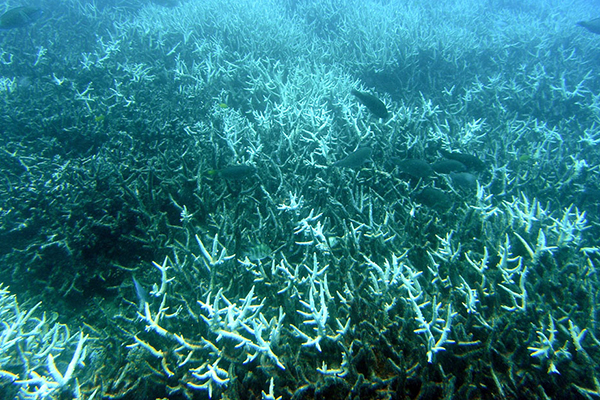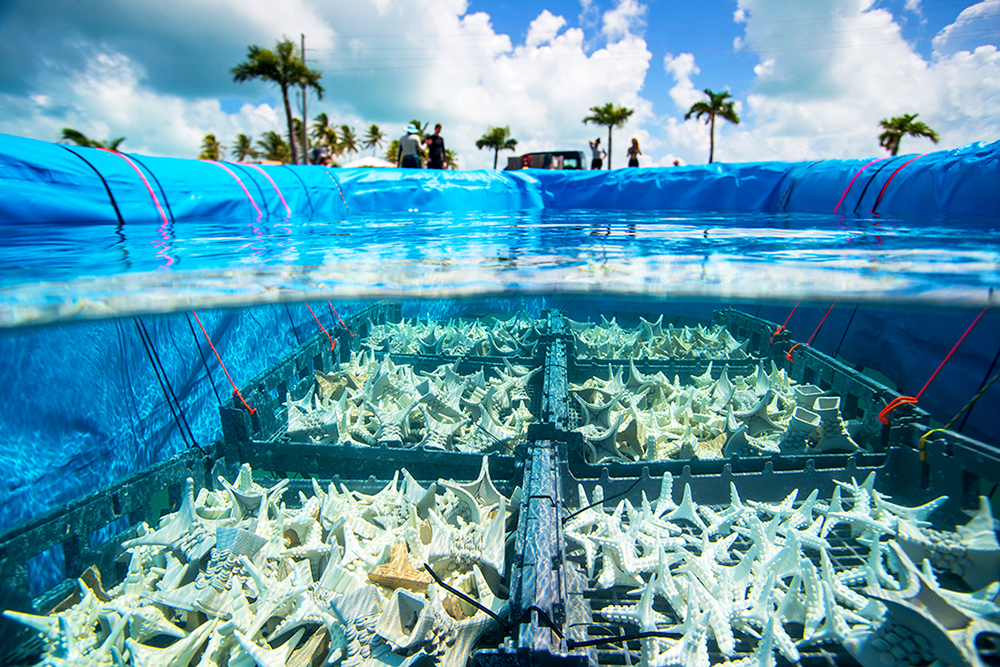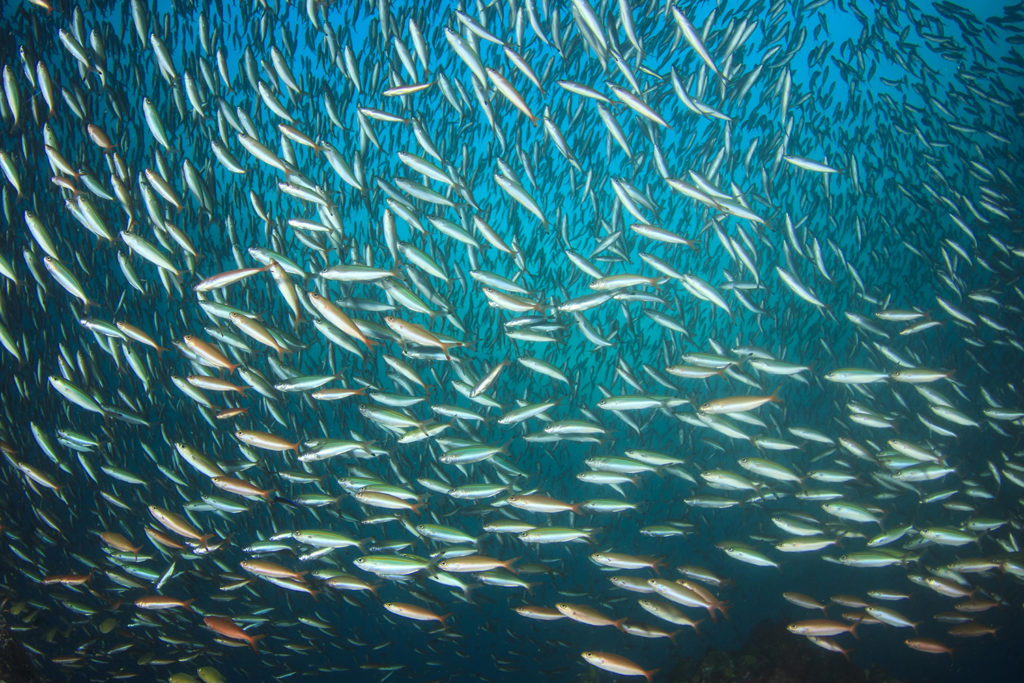Up to 90 percent of coral reefs worldwide could become ‘functionally degraded’ if Paris Agreement goals aren’t met

Coral reefs are a vital source of food, livelihood and cultural heritage for half a billion people on the planet and are significant for the survival of marine species. But forecasts by an international team of environmental scientists indicate that the world’s coral reef ecosystems are likely to become “functionally degraded” by 2050 if the Paris Agreement goals are not met.
“Coral reefs are the ‘canaries in the coal mine’ when it comes to sensing ecosystems under stress from ocean warming due to climate change,” said Jens Zinke, co-author of the report and professor of palaeobiology at the University of Leicester. “Corals can sense when ocean temperatures exceed a dangerous threshold and warn us when we need to take measures.”
Even with aggressive emission reductions to ensure global warming is kept within 1.5°C above pre-industrial levels, the team warns that up to 90 percent of corals could still vanish in the next three decades, leaving behind a reef structure that will lose many of its functions.
The Vibrant Oceans Initiative presented its white paper on the future of the delicate and crucial habitats at the 2022 Our Oceans Conference held in Palau. Drawing on expertise from universities and wildlife conservation groups worldwide, the paper outlines six key recommendations intended to promote the “persistence and survival” of coral reefs:
- Continuation of the 50 Reefs approach as “climate change avoidance sanctuaries” as a priority for investment in coral reef conservation.
- Expansion of the 50 Reefs conservation portfolio for climate change to include coral resistance and recovery sanctuaries.
- Increase in support for regional evaluations of the health of the 50 Reefs portfolio, and sustainable financing initiatives to support the implementation of regional portfolios.
- Catalyzing large-scale, data-driven coral reef monitoring efforts to test and develop new models and predictions of climate sanctuaries.
- Use of the latest climate coral reef science to guide investments, especially as the impacts of climate change accelerate and produce novel environmental stresses and responses among reefs.
- Embracing a far-reaching approach to the management of 50 Reefs sites, including connections to broader seascapes, fisheries and water quality management, mitigation of other pressures (for example, industrial development), so that effective and equitable management has measurable benefits for coral reefs and coastal communities.
In 2018, the Vibrant Oceans group identified 50 reefs that are most likely to resist and survive climate change. The habitats are located largely in the Pacific and Indian oceans, with further reefs in the Caribbean and east of Africa. Previously the 50 reefs were mainly chosen at sites that escaped climate change. Now, the scientists call for a wider portfolio of reefs that should include resistant and fast-recovering reefs.
“Our research has shown that coral reefs have been severely impacted by ocean warming in the past three to four decades, yet some reef locations show lower rates of warming or benefit from mitigating circumstances due to local oceanography,” said Zinke. “Some reefs have the ability to resist or recover from thermal stress faster than others, and these reefs may serve as sanctuaries under future warming. This is a major new research direction – to find those locations and protect them before they are gone.”
Part of Bloomberg Philanthropies, the Vibrant Oceans Initiative works to “protect and restore the world’s ocean” by promoting ocean conservation, protecting resilient coral reef habitats and reducing the practice of harmful and illegal overfishing.
Read the full white paper here.
Follow the Advocate on Twitter @GSA_Advocate
Now that you've reached the end of the article ...
… please consider supporting GSA’s mission to advance responsible seafood practices through education, advocacy and third-party assurances. The Advocate aims to document the evolution of responsible seafood practices and share the expansive knowledge of our vast network of contributors.
By becoming a Global Seafood Alliance member, you’re ensuring that all of the pre-competitive work we do through member benefits, resources and events can continue. Individual membership costs just $50 a year.
Not a GSA member? Join us.
Author
Tagged With
Related Posts

Responsibility
A wider view: Conservation aquaculture anchors coral reef restoration
Half a billion people depend on coral reefs for food, income, coastal protection and more. The need to protect and restore their biodiversity is urgent.

Responsibility
Study: Climate change will shuffle marine ecosystems in unexpected ways as ocean temperature warms
A study found that, as the ocean temperature warms, fish will continue to exist in certain areas but are not likely to be as abundant.

Responsibility
Study: 2021 breaks record for hottest ocean temperature
New research shows the ocean temperature in 2021 was the hottest ever recorded by humans, and the effects of ocean warming are "far-reaching."

Fisheries
Study: Climate change is likely ‘suffocating’ the world’s fisheries
A new study indicates the ocean is losing oxygen due to climate change, greatly affecting fisheries and other marine resources.



